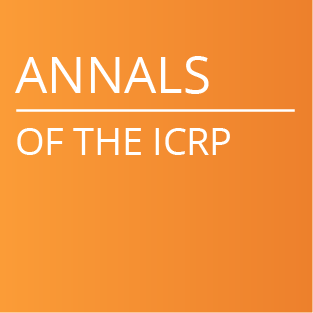Attrition Clauses
How they affect the Annual Meeting
Bruce Curran
Chair, Annual Meeting Coordination Committee
Attrition Clauses? Probably not a term you have heard unless you were a member of the Organizing Committee for the 2000 World Congress. However, they now affect most of our upcoming AAPM Annual Meetings, as well as other scientific, educational, or professional meetings we are likely to attend. And the result of such clauses can significantly affect the balance sheets for the meeting and for the AAPM at-large.
What are attrition clauses?
When HQ and the Annual Meeting Coordination Committee (AMCC) book a city for an Annual Meeting, we normally reserve a number of rooms at one or more hotels. The more rooms we book, the better the rates we receive, not just from the particular hotel, but also from the convention center and other facilities we might need during the meeting (bus service, etc.) Rooms are reserved for each night of the meeting, usually starting the Friday before the meeting starts and ending the Thursday evening after the meeting. We also try to book just enough rooms so that all persons attending the meeting will be able to reserve rooms up to the registration deadline. In previous years, societies were not penalized for overbooking, as long as the rooms were freed by the society several months before the meeting (hence the advance registration deadline). In addition, hotels share information on the rooms booked and attributed to the society, so that societies could not overbook a large number of rooms, the hotel knew what was a reasonable number.
This “free” overbooking is no longer allowed by hotels today. At the end of the meeting, each hotel adds up the total of room-nights (the sum of the number of rooms used each night) and compares this to the number of room-nights promised by the society (usually 4-7 years in advance). If the society has overbooked these nights, it is liable to pay the hotel for the nights unused. This fee can be quite large; before negotiation, it was nearly $1,000,000.00 for the 2000 World Congress.
What causes lost room-nights?
Typically the AAPM sells out its booking for the Annual Meeting. What this means is that, as of the registration deadline, each hotel has received sufficient reservations to fulfill the quotas agreed to between the AAPM and the hotel. Often, in fact, we do not have sufficient rooms, and must negotiate for additional rooms, hoping that the hotels have not sold those rooms to non-AAPM guests. What happens then, that results in attrition clauses being invoked?
There are two common actions that can cause attrition clauses to become active. The first of these are people who cancel reservations after the deadline. While sometimes unavoidable, this may have forced other individuals to make reservations outside the AAPM room block, or to use an alternate hotel. In either case, the reservation then drops the number of credited room nights. If a sufficient number of individuals cancel, the attrition clause may come into play. The second type of attrition action results from individuals who book a room for the entire period, then leave early or arrive late. Although they have, in fact, used their reservation, they have reduced the number of room-nights booked and can result in attrition fees.
What can the AAPM do to prevent Attrition Fees?
As a society, the AAPM depends upon the Annual Meeting to produce a sufficient amount of revenue to support many of its programs. (The Annual Meeting is one of three significant revenue sources, the other two being dues and the Journal.) Obviously, a large attrition penalty could significantly affect the profitability of the Annual Meeting, and result in some programs being un- or under-funded for the year.
To prevent attrition fees, the obvious answer is for HQ and the AMCC to reduce the number of room-nights booked for the Annual Meeting. Unfortunately, this can result in increased costs to the AAPM and to the attendees for the meeting, as well as some inconvenience. Based on the number of rooms in the block, other facilities in the hotel (meeting rooms, banquet space, complimentary rooms, etc.) are made available to the AAPM for little or no cost. As the number of room-nights is reduced, rates for that space, as well as the rates offered to attendees, will rise. Additionally, since we have normally ‘sold-out’ at the current number of rooms, many members will find themselves unable to reserve a room, particularly in some of the more popular cities.
How can you help?
There are a number of things you can do to help prevent the society from incurring attrition fees. These include:
- Book your room reservation early and as accurately as possible. We recognize that unforeseen conditions may alter plans, but the earlier you let the hotel know of changes, the more likely it is that another member will be able to fill the nights you cannot be present.
- Use the AAPM reservation service. The more individuals who book within the AAPM block, the better our rates will be, and the less we will be charged for use of meeting rooms, etc. In addition, Annual Meeting registration fees for each year are based on results from the past 1-3 years results. If we need to budget attrition fees and other costs into the registration fee, it will rise. The higher the percentage of attendees who use the hotel registration service, the better we will be able to accurately book room blocks for upcoming years.
With your cooperation, the AMCC and HQ will continue to be successful in negotiating good contracts for the association for the Annual Meeting, and the AAPM will be able to maintain the programs and activities that you have requested.



















